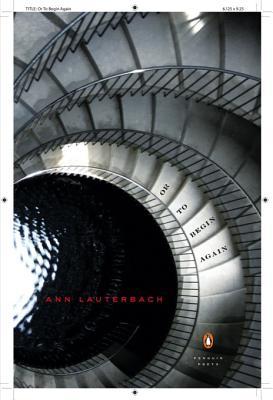
Or to Begin Again
Penguin Poets
کتاب های مرتبط
- اطلاعات
- نقد و بررسی
- دیدگاه کاربران
نقد و بررسی

April 20, 2009
This ninth collection of poetry finds Lauterbach doing what she does best, anchoring her roving eye and associative thinking among the banalities and raptures of a mature urban life. If her banalities, often comically deployed, are sometimes merely that (“There are new blinds on the windows across the wayâ€), her raptures, often in the form of physical description, can truly exhilarate and sound like no one else's: “as the sun sets, tiny distinctions appear among luminosities, sky, river, car, white fence, yellow lights of passing cars, pale stone of the graves.†Less rhapsodic than usual, Lauterbach may apologize for “not making meaning,†but when she does make it, she reveals a gift for impeccably phrased insight: “one falls in love/ with the condition of hope// and falls out of love with its/ cruel replacement, hope....†Highlights of the book include its title poem, a breathtaking, understated 14-part elegy, and the centerpiece, “Alice in the Wasteland,†a playful semiotic dialogue that finds Carroll's Alice interrogated by an impersonal “Voice†as she wanders through Eliot's labyrinth of dysfunction. Intelligent but no less deeply feeling, this collection confirms Lauterbach's position as one of the most highly principled and tirelessly innovative poets writing today.

April 15, 2009
"Let us, / among the/ constancy/ of living/ and its/ images/ begin." These words, embedded within the funnel/tornado/cyclone shapes of the brilliant poem "Alice in the Wasteland" (a spin-off from Carroll and Eliot) are at the heart of MacArthur Fellow Lauterbach's book. The poems here are, like Lauterbach's Alice, searching for clues in the rubble of a postmodern lexicon: "Everything is suspended but changing, she thought." There is darkness"soiled, possibly bloody," and filled with "cries/ of the suddenly dying." Yet while elegy plays its part, this book is also filled with witty variation and wordplay. The long title poem is inventive in form but ultimately unsuccessful; mostly the poems act like maps of fractals on the page, and one danger is that they can sometimes seem like solipsistic singing in the showeraccomplished, well intentioned, acoustically gifted, but a self-to-self chorale all the same. Still, as Emerson said, nothing is perfect but the hope of it, and anyone interested in how language both enables (ennobles) and prevents us from engaging our world will have much to mull here. Recommended for contemporary collections.Susan Kelly-DeWitt, Sacramento, CA
Copyright 2009 Library Journal, LLC Used with permission.

























دیدگاه کاربران